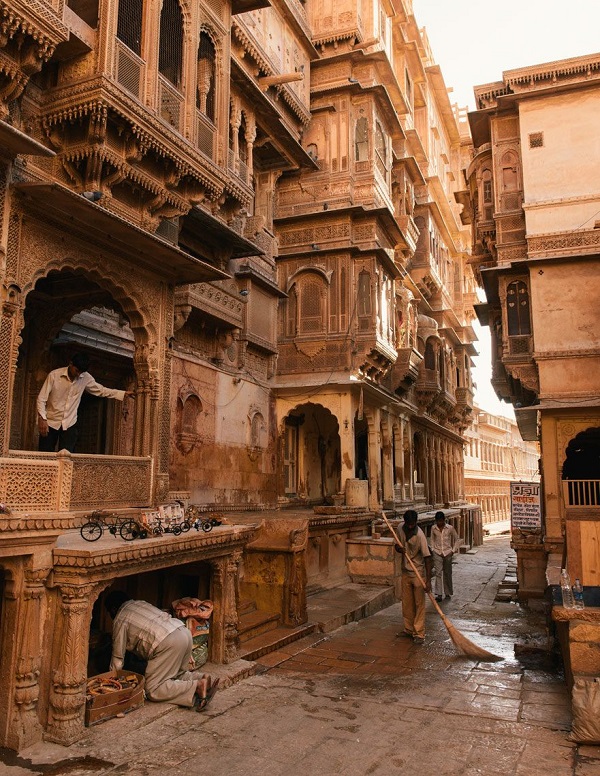FWP:
SETS
JALVAH: {7,4}
WINE: {49,1}
The inshaa))iyah first line can be, thanks to a variant form of the 'kya effect', either a question or an exclamation of amazement.
Nazm and Bekhud Dihlavi see the verse as a taunt or reproach to the beloved, who is intimately addressed in the tuu form. The sense of arzaanii as 'cheapness' (see the definition above) works for this reading. The beloved's proper role is to be difficult of access, not to freely show herself to all and sundry. The proof that she is easily visible is that all the walls and doors in her lane are intoxicated and reeling with her splendor. She shouldn't be providing her radiance, like cheap and abundant wine, to all comers.
But arzaanii also means 'abundance, plenty, a good harvest'. Perhaps the beloved's radiance penetrates the street even without her showing herself in any cheapening or undesirable manner. How can she help it if the very air in her vicinity, the very walls and doors in her street, are electrified by her presence? In fact it's a tribute to the irresistible, pervasive power of her beauty.
As Bekhud Mohani observes, however, it's also quite possible that the lover himself is the one who's intoxicated, rather than the walls and doors. Thus as his head reels, he sees the doors and walls as swaying, and thinks of them as reeling and staggering with drunkenness.
And of course, the possibilities aren't mutually exclusive
either.


Nazm:
By way of a taunt, the poet says, to what an extent now you'e made the wine of the sight of you available to anybody and everybody! (53)
== Nazm page 53